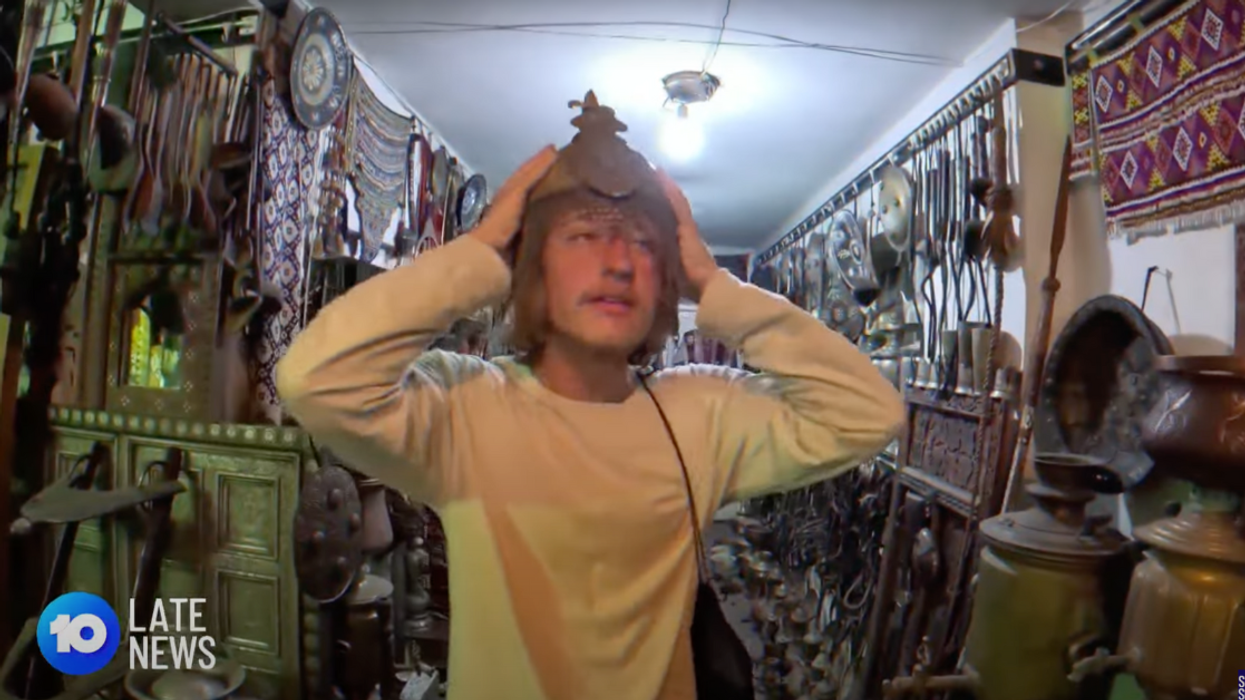A jury's quick acquittal of seven militants in Oregon on charges stemming from the armed occupation of Oregon's Malheur National Wildlife Refuge raised cries of racial bias and white privilege. The all-white jury took just six hours to find all of the defendants not guilty on all conspiracy charges despite the fact the armed takeover was live streamed to the world and authorities discovered huge caches of weapons and ammunition on the property.
Critics noted the irony of images of native protesters being maced and attacked over their peaceful protest on the very day the verdict was delivered. Many charged that if the militants had been Native American or black, they would have been killed, not acquitted.
Vox's German Lopez expressed similar concern. "It is impossible to ignore race here. This was a group of armed white people, mostly men, taking over a facility," he wrote. "Just imagine: What would happen if a group of armed black men, protesting police brutality, tried to take over a police facility and hold it hostage for more than a month? Would they even come out alive and get to trial? Would a jury find them and their cause relatable, making it easier to send them back home with no prison time?"
The evidence and the case were very strong against the defendants. The case relied heavily on testimony from local law enforcement, including FBI agents who responded to the occupation or processed evidence after the standoff had ended.
There was never a question that the group had occupied the refuge: Federal prosecutors took two weeks to present evidence, which included a display of more than 30 weapons seized after the standoff. According to an FBI agent who testified during the trial, authorities recovered 16,636 live rounds and nearly 1,700 spent casings at the scene. Ammon Bundy, who led the nearly six-week occupation with his brother, Ryan, spent three days testifying, during which he continued to protest federal land ownership. He even participated in interviews during the standoff in which he called for more people to support the occupation.
“At the end of the day, there is an element of common sense that demonstrates the guilt of these defendants,” Assistant U.S. Attorney Ethan Knight said during his closing arguments during the trial. “These defendants took over a wildlife refuge and it wasn’t theirs.”
In his criticisms of the verdict, German Lopez notes that this "common sense" is privilege bias at work: "The social science is pretty clear: People are much more likely to look at black people and see criminals and wrongdoers. They don’t get the privilege of innocence in the same way that white people — including these militants in Oregon — do."
In fact, he mentions, a study published in the Journal of Personality and Social Psychology in 2014 found that the public is far more likely to associate black people "with criminality and violence." As Phillip Goff, an author of the study, said in a statement: “Children in most societies are considered to be in a distinct group with characteristics such as innocence and the need for protection. Our research found that black boys can be seen as responsible for their actions at an age when white boys still benefit from the assumption that children are essentially innocent.”
Another study from researchers at the University of California Los Angeles suggests that individuals tend to associate "black sounding names," like Deshawn and Jamal, with physical threats than they do "white sounding names" like Connor and Garrett, or, in this case, Ammon and Ryan. (Their five co-defendants are named Jeff, Shauna, Kenneth, David, and Neil, respectively.)
“I’ve never been so disgusted by my own data,” Colin Holbrook, the lead author of the study, said in a statement. “The amount that our study participants assumed
based only on a name was remarkable. A character with a black-sounding name was assumed to be physically larger, more prone to aggression, and lower in status than a character with a white-sounding name.”
These biases impact black people within the legal system. According to a 2012 report from the US Sentencing Commission, black men receive more time than white men for the same crimes: An analysis of black and white men arrested for drug trafficking found that black men received sentences that were 13.1 percent longer.
The lack of negative biases against white people also suggests that some white people might find themselves relating to the defendants. In his report for NPR, Kirk Siegler noted the effects of the acquittal: "As one supporter [of the defendants], Nevada State Rep. Michelle Fiore told me, the verdict shows that Americans need to stand up to "unlawful behavior by federal employees." [Groups that study far-right militants] say this verdict will embolden [them to commit] other extreme anti-government acts, especially if Hillary Clinton is elected."
The defense also took the focus away from conspiracy, exploiting on the divide between rural and urban America. In his closing statement to the jury, Matt Schindler, hybrid counsel for defendant Kenneth Medenbach, asked, “How did any of these people benefit from protesting the death of rural America?” As German Lopez notes, "Translation: These guys were trying to speak out against problems that afflict you. How could you turn against them?"
Other critics assert that the leniency the defendants received lies in stark contrast to the offenses committed against protesters in Standing Rock in North Dakota, many of whom have been brutalized by riot police.
Some Twitter users responded with the hashtag #WhyWhitenessWorks to illustrate their point.
Others commented with sarcasm.
As writer April Jones notes, "Two different hashtags were trending on Twitter Thursday night: #OregonStandoff and #NoDAPL. One hashtag refers to the attempted takeover of a federal wildlife refuge in Oregon by a family of ranchers; the other is an attempt to stop the destruction of sacred land and environmental resources. Both situations involve a clash between the United States government and private citizens over land ownership, but the way the government is treating the people involved is shockingly different."
Adding "insult to injury," she continued, "as the attacks on protesters in North Dakota were taking place, the Bundy ranchers were acquitted of criminal charges. In a display of white privilege, most of Bundy’s clan managed to survive the standoff with the exception of Robert LaVoy Finicum who was shot by police after he fired at them... Proving just how classy this bunch is, their lawyer got into a verbal altercation with the judge over the terms of Bundy’s release which ended with the lawyer being tackled and tased by law enforcement."
In a statement Thursday evening, Dave Archambault II, chairman of the Standing Rock Sioux Tribe, criticized the "militarized response" of law enforcement. "Militarized law enforcement agencies moved in on water protectors with tanks and riot gear today. We continue to pray for peace," Archambault said. We won't step down from this fight. As peoples of this earth, we all need water. This is about our water, our rights, and our dignity as human beings." He urged his fellow activists to "continue in peace and prayer."
This week has seen continued clashes between demonstrators and law enforcement. Authorities confirmed yesterday that they would maintain a presence after arresting and forcibly removing 141 protesters from the camp using trucks, military Humvees, and buses; there were reports officials used pepper spray and fired bean bags on activists. Officials said protesters were on private property in the path of the pipeline. The incident comes on the heels of the arrests of more than 80 people last Saturday after a five-hour confrontation with police. The local sheriff department said authorities used pepper spray on demonstrators attempted to breach a line law enforcement had created between the demonstration and construction equipment.














 rPolitics/Reddit
rPolitics/Reddit @leftynavyseal/Bluesky
@leftynavyseal/Bluesky rPolitics/Reddit
rPolitics/Reddit @skippyoz/Bluesky
@skippyoz/Bluesky rPolitics/Reddit
rPolitics/Reddit rPolitics/Reddit
rPolitics/Reddit rPolitics/Reddit
rPolitics/Reddit
 jordi baste robot GIF by No pot ser! TV3
jordi baste robot GIF by No pot ser! TV3 sing schitts creek GIF by CBC
sing schitts creek GIF by CBC Well Done Ok GIF by funk
Well Done Ok GIF by funk Two Face Ernst GIF by ZWEIMANN
Two Face Ernst GIF by ZWEIMANN
